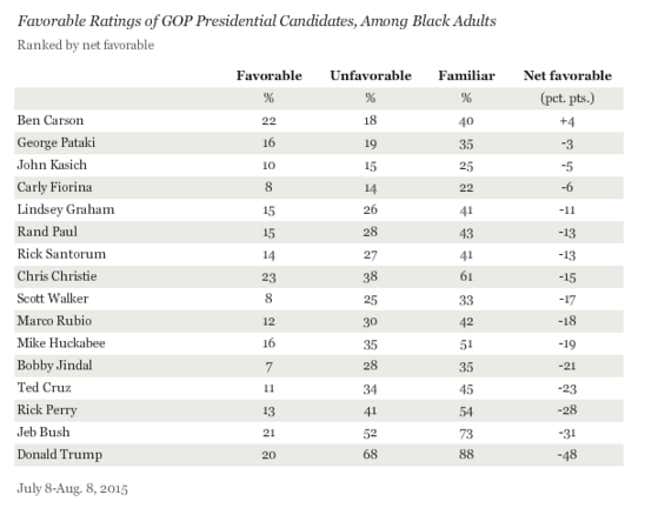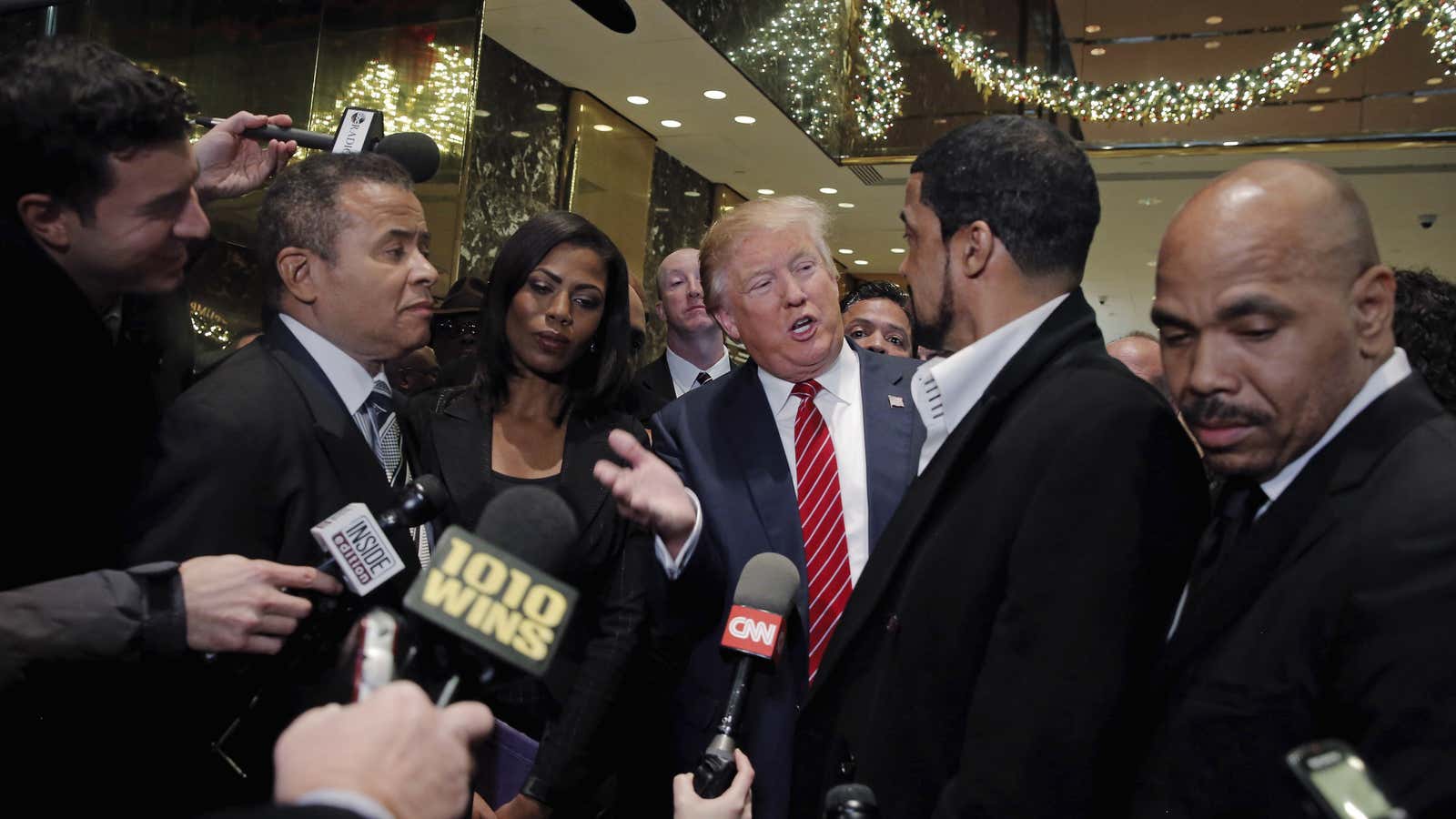If nominated, can Donald Trump attract black voters?
Frank Luntz, a Republican messaging consultant, thinks so. He’s convinced that Trump would garner the highest percentage of black votes since Ronald Reagan in 1980 (14%). “They listen to him. They find him fascinating, and in all the [focus groups] I have done, I have found Obama voters, they could’ve voted for Obama twice, but if they’re African American they would consider Trump,” he told Politico.
Trump, of course, is ever-confident: “I think I’m going to win the African-American vote, and I think I’m going to win the Hispanic vote,” he told CNN’s Don Lemon in December.
“I will be great for African Americans,” he told ABC News this weekend. (Trump has also updated his syntax: In 2011, he boasted that he has “always had a great relationship with the blacks.”)
Trump has actively courted African-American religious leaders in recent months. He’s made a pair of black female video bloggers, Lynette “Diamond” Hardaway and Rochelle “Silk” Richardson—the “Stump for Trump Girls”—quasi-official parts of the campaign. And if Trump wins the Republican nomination, he’s certainly going to need support from unexpected quarters: His net favorability numbers—the difference between the percentage of people who think favorably about him, and those who think unfavorably—are dismal: -27 among independent voters and -70 among Democrats, the worst of any candidate in the race.
But the suggestion that Trump is well-suited to win black votes is laughable: Seven in 10 black voters have an unfavorable opinion of the real estate mogul—that puts him in last place, by a considerable margin, among all of the Republican candidates.

It has become something of a tradition for Republicans to vow that they will win over minority voters—whether it’s Hispanics, blacks, or Jews:
- Ronald Reagan directly addressed African-American voters on multiple occasions in the run-up to the 1980 presidential election.
- Arizona senator John McCain, who ran against Barack Obama in 2008, devoted a substantial amount of his minority outreach to Latino voters—perhaps knowing that appealing to black voters in the face of the first African-American presidential candidate was a losing battle.
- In 2012, Mitt Romney promised to replicate George W. Bush’s success with Latino voters (a record-breaking 40% in 2004). It failed spectacularly: only a paltry 27% voted for Romney.
The nomination of president Barack Obama in 2008 saw an unprecedented surge in black voting, with 64% of African-American 25 to 44-year-olds turning out on election day—the highest rate of any group that year. In 2012, black voters of all ages turned out at a rate of 66%, while only 64.1% of whites cast ballots, marking that year the first since 1968 when blacks turned out at a higher rate than whites.
The Black Lives Matter movement, aimed at reducing police shootings and reforming the criminal justice system, is already playing a major role in the Democratic primary, and will likely continue to influence the general election. And if Trump truly wants to win over black voters, he is not well-served with comments like this (from the most recent Republican debate in South Carolina):
